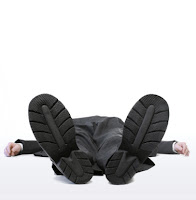
Your creditors will be more interested in finding a way to get back their money than in forcing you into bankruptcy. But bankruptcy is an acceptable legal process that seeks the best resolution for you and your creditors. Although it's preferable to avoid the intrusion, stigma, and future credit problems that bankruptcy brings, sometimes it's the best solution. Once you apply to the courts, all collection efforts against you must stop, you're not allowed to take on new debts, and your assets are frozen.
You have two options:
Ask for a plan
You can apply for Chapter 7 bankruptcy. Here, you ask the court to create a workable plan and to carry it out. Your assets are frozen and a court-appointed person ('trustee") takes control of your finances. The trustee's job is to analyze your assets, income, and debts, then create the plan to distribute your assets to creditors as fairly as possible and in an orderly manner.
Usually, you'll he allowed to keep a certain amount of "exempt" assets in order to maintain a reasonable, modest lifestyle. Your income is usually protected so you can continue to support your family.
Once your assets have been distributed, the balance of your debts will be forgivenexcept for certain obligations, such as child support, alimony, and criminal liability. So, depending on your circumstances, you could he debt-free; although you'll have a damaged credit record that will take time to rebuild.
The process
1. Good professional guidance is advisable, but there are also self filing forms available from books or the local court. (Filing fees are around $200.1 You may file for Chapter 7 only every six years. There's no limit on filing for Chapter 13.)
2.You'll be asked to provide verification of
- income and property owned
- debts
- monthly living expenses
- property you're claiming as exempt
4. A bankruptcy stays on your credit report for 10 years. When you begin applying for credit again, some lenders-but not all-will consider you too great a risk. By using tools such as secured credit cards, you can gradually rebuild a positive credit profile.
Create your own plan
Applying for Chapter 13 protection is similar to Chapter 7, but gives you more flexibility to resolve your debts as you see fit.
After filing, you present the court with your own scheme to repay your creditors, usually within three to five years. Generally. you must pledge all your disposable income (what's left after reasonable fixing expenses) to then plan.
If the court accepts your plan, you'll make you, payments to the court-appointed trustee, who will monitor your situation and distribute the money to your creditors. At the end of the process, you'll I w allowed to keep your remaining property, all cI the balance of any debts will he wiped out (unless, by law, they can't be discharged).
If the court doesn't accept your plan, you may he able to submit another plan or switch to Chapter 7.
What's protected, what's not. Some debts are dischargeable (they'll be forgiven even if you don't repay in full). Some assets are exempt (they can't be used to repay debt). Here are some examples of dischargeable and exempt assets in some states; be sure to consult an attorney.
DEBTS:
Dischargeable
back rent, utility bills,
personal loans,
legal or accounting fees,
court judgments
Cannot be discharged
alimony, credit card charges,
child support, tax obligations,
student loans, medical bills,
fines
ASSETS:
Exempt
your main car, tools of your trade, food, clothes, family heirlooms
Not exempt
luxury items, limited personal property, investments, cash
Notes:
Secured loans. Creditors with secured loans loans for which you've specifically pledged your home, car, or other property) are first in line to be repaid from the sale of that property.
Fraud warning. Some people try to use courts to avoid debts. It you've transferred property, withdrawn lots of cash, or bought luxury items immediately prior to filing, a court will investigate the possibility of fraud.

No comments:
Post a Comment